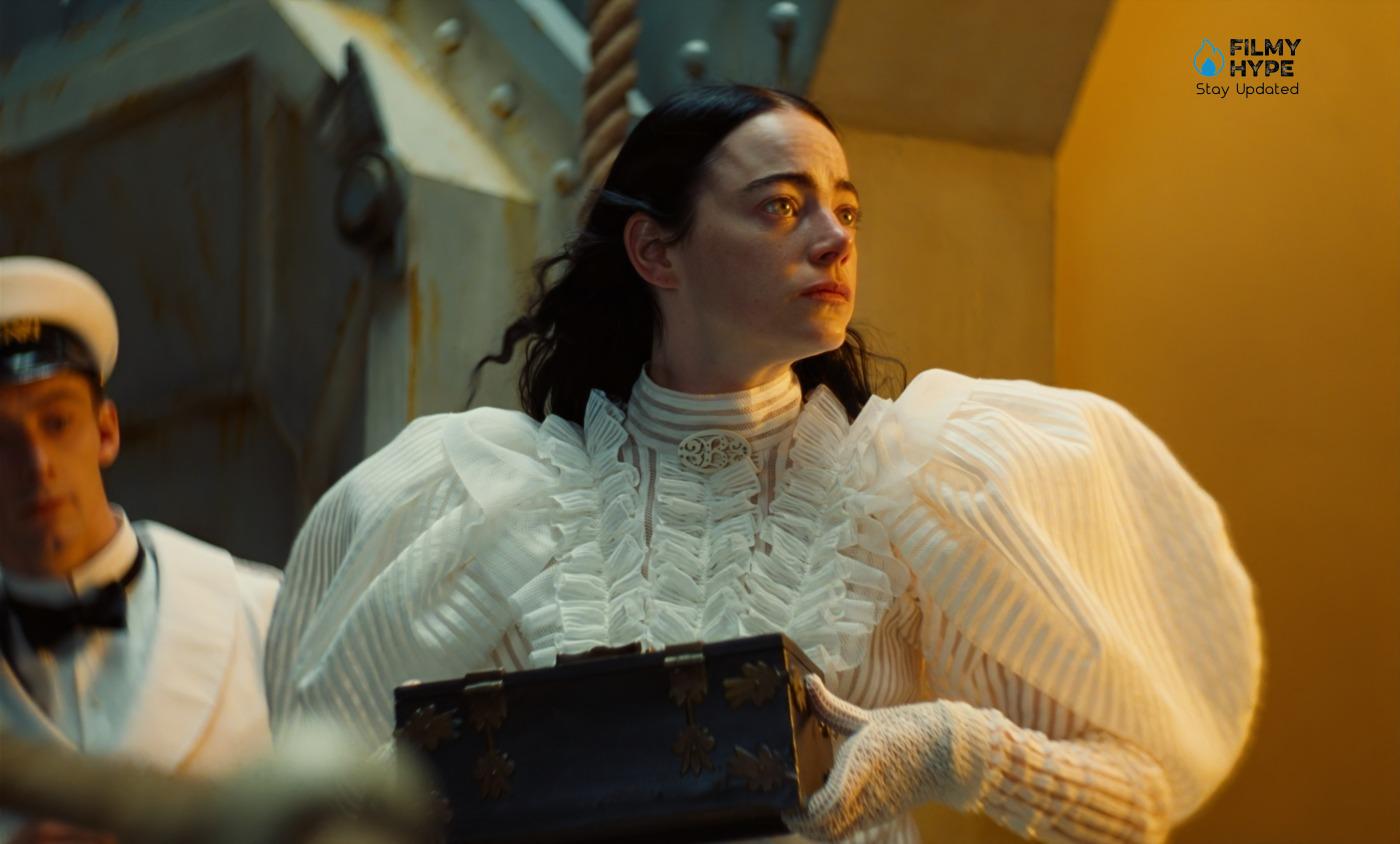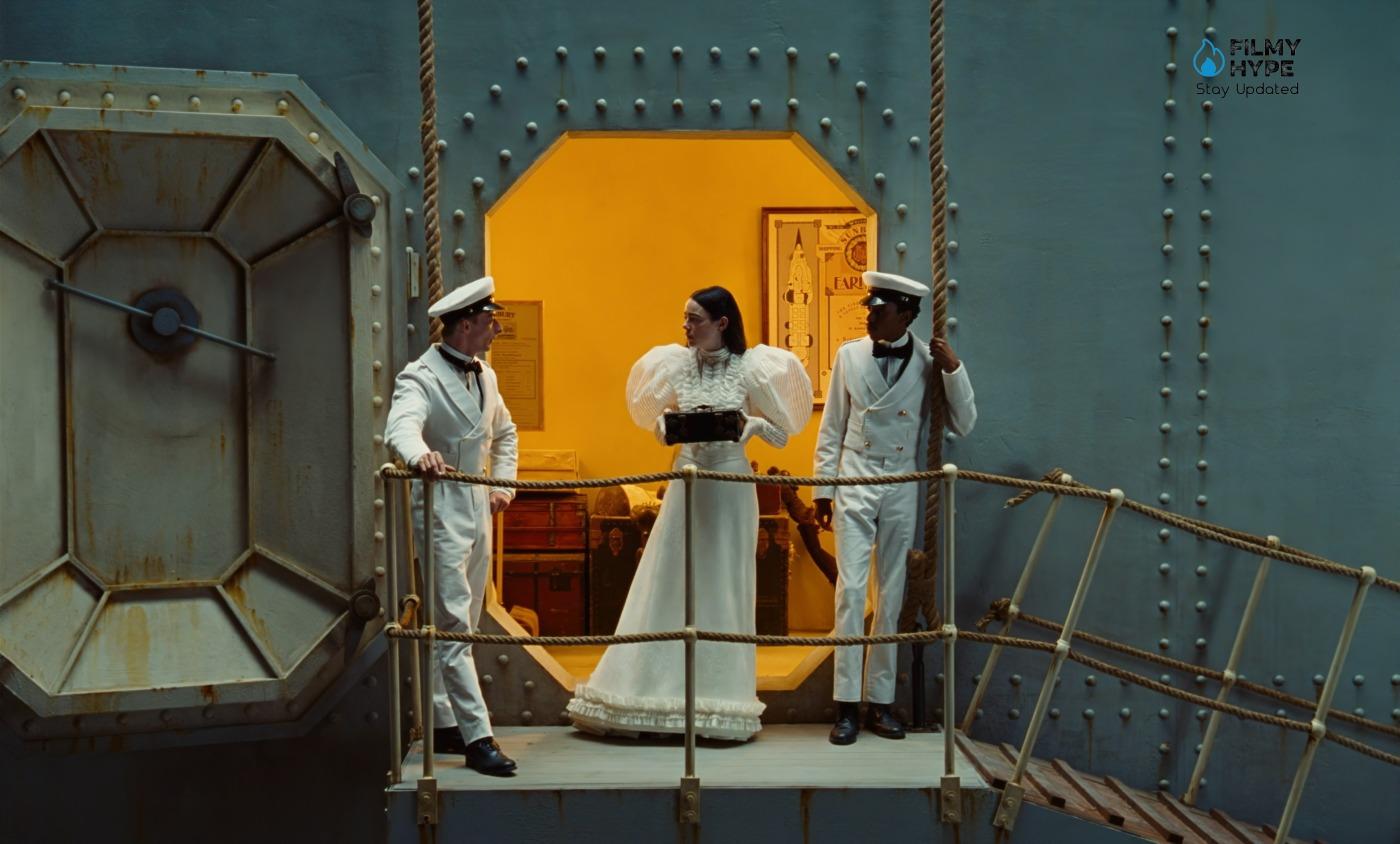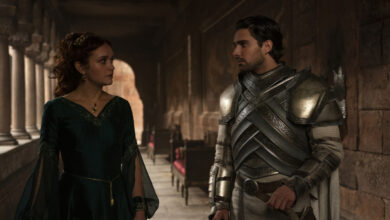Poor Things Ending Explained: What Happened to Bella Baxter and What Decision She Made for Her Future?
The film Poor Things is now available in cinemas around the world, so more than one movie buff has already enjoyed this work nominated for 11 awards at the 2024 Oscars. If you reached this note, it is because perhaps you were left with some doubts about its outcome. Therefore, in the following lines, I present to you the ending explained (ending explained) of Yorgos Lanthimos’ film. It is worth pointing out that the film takes place over 141 minutes, a time in which we enjoy the talent of performers of the stature of Emma Stone, Mark Ruffalo, and Willem Dafoe, among other great artists. Together they tell the story of Bella Baxter (Stone), a young woman revived by the brilliant and unorthodox scientist Dr. Godwin Baxter (Dafoe). She’s eager to learn, so—hungry for the worldliness she lacks—she runs away with wicked lawyer Duncan Wedderburn (Ruffalo) on a whirlwind adventure across continents. Thus, free from the prejudices of her time, Bella becomes firm in her purpose to defend equality and liberation.

Yorgos Lanthimos ‘s cinema is, by definition, unpredictable. The Greek filmmaker has a very personal and unique vision, which is modified and adapted to each new project that he presents to us. Canino (2009) catapulted him, Langosta (2015) put him into the Hollywood sphere, The Favorite (2018) brought him closer to a more mainstream audience and Poor Things has confirmed him as an infallible author. In this journey of initiation and maturation a woman, once again finds her best ally in Emma Stone. Without a doubt, Bella Baxter is the most extreme and outstanding performance of the actress, who also signs as a producer. Stone considers her favorite to win what would be her second and well-deserved Oscar on March 10; Not in vain is she, radical and hypnotic, the heart of Poor Things. Poor Things is a visual journey in content and form, a surreal painting passed through the fisheye and transitions from black and white to color that formulates a Frankensteinian fable about female freedom.
Although Stone is the center of everything, converging the absurd and the dramatic without falling into exacerbated histrionics, changing with her movements and her vocabulary from girl to woman, she is accompanied by Willem Dafoe and Mark Ruffalo almost as overwhelming as she is. Perhaps the most surprising work is that of Ruffalo, in a character opposite to what he usually does. The actor takes away the title of adorable man by embracing a drastic change in the role of a pathetic scoundrel. And how well he does it… Based on the book by Alasdair Gray and scripted by Tony McNamara, who previously collaborated with Lanthimos and Stone on The Favorite, Poor Things follows Bella Baxter (Stone), a young woman revived by the brilliant and unorthodox scientist Dr. Godwin Baxter (Dafoe). When Duncan Wedderburn (Ruffalo) appears in her life, Bella sets out into the world in search of knowledge and freedom, embarking on an adventure through different countries, oblivious to conventions.
Poor Things: Summary Recap
We are in London, in the midst of the Victorian era. The protagonist of the story is Bella (Emma Stone), a young woman who committed suicide but was promptly brought back to life by Godwin Baxter (Willem Dafoe), a “mad scientist” who transplanted her with a new brain. In her first weeks, therefore, Bella is a creature as beautiful and fascinating as she is awkward in her movements and childish in her behavior. All the men who have to deal with her, however, are soon won over by her: Godwin has an affectionate and paternal attitude towards her as well as a mere scientific interest, while another younger doctor, Max McCandles (Ramy Youssef), he falls in love with her, calling her a “splendid retard”. However, it will be an unscrupulous lawyer named Duncan Wedderburn (Mark Ruffalo) who will take her around Europe, introduce her to the pleasures of life (primarily sex), and thus start her on a path of growth that will end up surprising everyone.
Poor Things begin with death. With a woman who lets herself sink into the ocean. Then, however, there is her life, offered by an eccentric scientist named Godwin (Willem Dafoe), nicknamed God, who brings her back to life, connecting her adult body with the brain of an infant. And this is how Bella Baxter (Emma Stone) is born, an experiment created for the love of science, who over time learns all the basic actions of a human being, under the watchful attention of her creator. The first walks, the first dances, the first words: a life of firsts. But Bella’s curiosity is great, too much. She wants to leave home, she wants to discover the world, she wants to see what’s outside those walls that protect her. She wants to discover what free life is, like without a father by her side.
Bella wants to grow up. Or maybe she has to. And so, she gives in to the temptation to follow a crafty and petty lawyer named Duncan (Mark Ruffalo), who is in love with her, leaving her nest and starting to travel around different cities, discovering sex, champagne, sweets, and people. strangers who, like her, populate the world, each with their own story. And she became aware of her body, her freedom, her life. Poor Things is a story of emancipation and self-determination, of self-discovery of one’s identity. A journey that translates the meaning of a creature, from a created thing to a living being, from someone’s product to the result of our experiments. A fairy tale, between Frankenstein and Pinocchio, is timeless and, in the same way, contemporary.
Poor Things Ending Explained: What Happened to Bella Baxter and What Decision She Made for Her Future?
During Bella’s journey, we witness the protagonist’s growth. She travels to Lisbon with Wedderburn and experiences her sexual awakening, but when he wants to lock her up, considering her his possession, she opens her eyes to the horrors of the human spirit on a ship that lands in Alexandria. After this loss of innocence, she arrives in Paris, her transition to adulthood from a brothel. The journey ends with his return to London and the healing of his bond with his father figure. The reason for his return is none other than the delicate state of health of Godwin Baxter, who is dying from cancer: in the British city, he must confront his ‘father’ for his creation, while also facing the past of the woman to whom his body belonged. But let’s go into parts. In the final act of Poor Things, Belle returns to London and discovers that Godwin has created another adult woman with a baby brain, just like her, named Felicity (Margaret Qualley).
It is then that she discovers her origin, how she has the body of her mother who jumped into the river and the brain of the baby she was carrying in her womb. In her desire to help other people, she decides to use the knowledge she has acquired from Godwin and become a doctor. Furthermore, and even though many treat her with contempt for having prostituted herself in Paris, Max McCandless (Ramy Youssef) still wants to marry her, so we witness the couple’s wedding. But just when they are about to get married, Alfie Blessington (Christopher Abbott) appears to prevent it. And who is Alfie Blessington? Victoria’s husband, the woman to whom Bella’s body belonged and who committed suicide. Alfie bursts in accompanied by Duncan, who has led him to Bella. The protagonist agrees to go with Alfie, eager to understand who Victoria is and why she feels so unhappy.

In the couple’s mansion, we discover that Alfie, a despotic being towards his employees, wants his wife confined and focused on having more children, and on top of that he intends to cut off her clitoris. Thus, Lanthimos sharply draws another portrait of fragile masculinity trying to control women, imposing their dominance and cutting off Bella’s freedom, depriving her of her pleasure. The protagonist approaches the last stage of emancipation by neutralizing an armed Alfie with poison. Throughout this journey of self-discovery that is Poor Things, Bella has not stopped fighting against the male forces that tried to imprison and take over her, from Max (in a lighter way) to Duncan and Alfie. On each occasion, the protagonist learns to fight back, first from youthful impetus and then from adult determination, until she becomes the owner of her life.
In the last minutes of the film, we see how Bella takes Alfie’s body to Godwin’s laboratory to operate on him, since her objective is not to kill him. Godwin dies, but Poor Things has a happy ending: in a last bucolic scene in the garden of the doctor’s house, we see the protagonist with Toinette (Suzy Bemba), her companion and socialist friend in Paris, Max, and Felicity. And where is Alfie? In the garden, but with another body. His brain has been inserted into the body of a goat. Thus, Bella says goodbye triumphantly, embracing the maturity and freedom that they have tried so hard to take from her. Poor Things is nothing but the journey towards the emancipation and independence of a woman.
Poor Things: Meaning of the Ending
Bella, like all humans, is born dependent on other beings but then begins a vital journey until she ends up defending herself and helping others, a growth that, in this case, occurs quickly, in an accelerated manner, revealing talent. of Stone to tackle a role that spans a lifetime in a short time. The character’s independence is successfully demonstrated through various aspects, such as when he rebels against sexual repression. Despite learning to adapt more to society as the film progresses, Bella keeps her sexual freedom intact no matter how “inappropriate” it may be and even silences the misogyny that reigns in the body of a goat. This protagonist’s journey is an atypical, surreal hero, but also a clear ode in defense of individual freedom. Stone is the one who defined it best in an interview for Vogue: “It was a great opportunity to live an entire life that was not marked by shame or trauma.” And that is part of the magic of this film that consecrates (even more) its director and its leading actress.
Why Did Bella Baxter Abandon Her Wedding to Max?
Although Bella seemed excited about the idea of marrying Max upon returning home, her curious spirit got the better of her and she decided to follow Alfie to learn about the part of his past life that she still didn’t know. After the film, it is not confirmed whether she finally married Max. However, both have likely decided to live together – or even just as friends – without the limits that a marriage entails.
The Reason Duncan Wanted Bella to Stay with Alfie?
Throughout the film, it became clear that Duncan enjoyed his relationship with Bella … as long as she didn’t surpass him in intelligence and desire. However, when time causes the two to switch roles, he can’t stand it. Therefore, upon discovering that Alfie Blessington had a past with the girl, the man sees his opportunity to teach him a lesson. That is, making the young woman have such a bad time that, in comparison, she misses the moments she lived with the lawyer.
Why Does Belle Decide to Follow in Godwin’s Footsteps?
During the film, we realize that Bella was affected by the poverty and inequalities that exist in the world. Thus, it is possible that she decided to follow in Godwin’s footsteps to help the less fortunate. At the very least, he’s proven to be talented enough during Alfie’s operation, and his skill will probably improve as the years go by.






